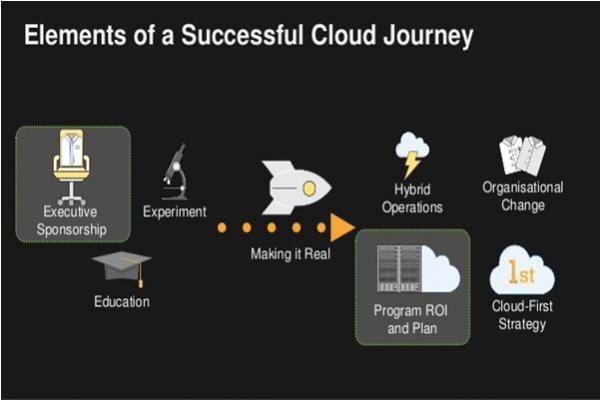The growth of MNCs in India extrapolated the developments in the educational sphere in the 90s. And, as a result, the need for specialized business management programmes gained prominence. Though there were a few institutes in the country which were running such programmes along the lines of leading global universities such as Harvard and Stanford, such institutes were not very accessible to a large chunk of MBA aspirants.
In the past two decades, many business schools came into being to fulfil the demand for qualified professionals. India being a highly populated country, and getting into a top league institute is simply arduous, considering the level of competition. According to experts in the academic sphere, it is more difficult to secure a seat in the IITs or the IIMs as compared to any top university abroad.
After spending nearly 23 years in the US, Dr. P. S. Rao returned back to his native place in rural Karnataka. Being an economist, he had been predicting high growth in India. Thus, taking this into the ambit, and, the consequent rise in demand for business management professionals, he felt he must create a learning centre, where he can develop future business professionals.
In the year 1994, he established Radiant Management Studies Institute, a management institute in Bangalore and offered a two years full-time course in business management. He initially utilized his own personal financial corpus that he had managed to earn while in the US. Within a few years, the institute moved from a two‑classroom facility to a multi-storied building around Central Bangalore. Eventually, a trust was created through which funds were raised through bank loans and government initiatives. The multi-storied building was named Palaash, and housed 12 classrooms, faculty cabins, staff rooms, information technology infrastructure, library, and, the offices of the Registrar and the Director. Initially, on the basis of a consensus from the trust and board members, Dr. Rao was unanimously appointed as the Director of the institute, a position he held on for nearly fifteen years.
Dr. Rao was a man of principles, and, under no circumstances would he let go of his integrity and honesty. He was a strong believer of ethics and morality. He engaged faculty and staff, all of whom were closely associated with him and believed in his ideology. The institute started to gain prominence in due course of time and functioned with efficiency. It produced potential high-quality professionals. The content of the course was up-to-date and in line with the market requirements. During those days, education was seen as a potential area of business and the trend was continuing. So, business schools started to function in the country with lucrative services like placements, alumni association, and so on. But Dr. Rao never believed in the trend of ‘100% placement’ and strongly felt that an educational institute was not a placement bureau. However, students were always attracted to other institutes which were offering good placements. Nevertheless, his institute always managed to get students since the fees offered were relatively low.
It has been more than a decade now that Dr. Rao had been running the institute as the Founder-Director. His principle and ideology were well accepted by many in the industry, and, garnered him high respect and credibility. In the year 2003, Dr. Rao appointed young faculty members to have a mix of experienced and young teachers with fresh ideas. The new faculty members were quite excited to work for the institute and ensure that its name assumed prominence on the national front. Many felt the importance of an interface with the industry as also the placements. Faculty members explained the need for enhanced student placements to Dr. Rao, and, he concurred with their views since he felt that the current generation had high expectations, and, placement was deemed essential. Eventually, the focus of the curriculum centred more towards the industry requirements, as the institute leaned towards increased average pay package for its students. Naturally, courses on big data, business analytics, design thinking, and communication skills gained importance in the entire management ecosystem. Thus, it attracted a lot of aspirants in the subsequent rounds of admission to pursue management studies at this institute, primarily to leverage on the industry‑specific courses and get a good placement offer.
The institute, however did establish a footprint in the industry, but, going by the recent remarks by its alumni, there was a drastic drop in student quality. During an industry convention, alumnus Rakesh Ranjan, AVP, Retail Banking, CDC bank provided the feedback to Dr. Rao that the management trainees recruited recently from the institute were not up to the mark.
In contrast, on the academic front, there was mismanagement in terms of coordinating the class timings and bringing quality guest faculty, and, a rivalry was brewing between the members of the faculty and the administrative staff. Dr. Rao was open-minded, and, a lot many people, including the students, took advantage of this aspect. For instance, while it was mandatory to attend the classes, no action was initiated against those who remained absent. And, on the administrative front, there was too much documentation required in terms of day-to-day functioning. During the payment of fees, there would be a huge rush, and, students were excused from lectures just to pay the fees for the semester.
Looking out of his office window, Dr. Rao looked back at his journey and the philosophy behind establishing Radiant Management Studies Institute. Even today, he did not let go of his belief that education is a weapon for change and transformation, and, he wanted to change his approach towards developing the institute to not only build managers, but, to contribute to the holistic development of an individual. So, he was gearing up to build his centre for excellence in the changing landscape of business and technology. He intended to hire the services of a consultant to recommend effective measures to restructure the institute, and, bring back its founding principles to the courses and the lives of the students. However, Dr. Rao is still not convinced that an educational institute should merely be imparting skills to its students. He is concerned that the market now demands skills over knowledge more than before, owing to large scale changes in the global economy.
.png)
Mrinmoy Majumder is a faculty member of People Strategy & Industrial Relations at the International Management Institute, New Delhi. He can be reached on mrinmoy.majumder@imi.edu.
.jpg)
Analysis by Rohit Hasteer is the Group CHRO for Housing.com, Prop Tiger.com and Makaan.com
Radiant Management Studies Institute's (RMSI) journey is very similar to a young promising start-up that is struggling to manage its metamorphosis into a high fledgling company. As the institute came out of its early stages, Dr. Rao seems to be in a quandary over creating an educational ecosystem that finds the right balance of imparting knowledge and skills. An approach of systems thinking will aid in comprehending the problem better, but, also look at solutions that are more holistic and long-term. When RMSI started, Dr. Rao's vision was to focus on education rather than emerge as a placement centre. This novel approach had relatively less takers, and hence, the scale was small and manageable. This ensured that the students received full attention and focus from the faculty, and everything was driven by the vision of building a great learning institute. However, there are some challenges with such an approach, which apparently cropped up as the institute began to get popular, and, had to increase its scale while catering to the industry needs. After all, education has to propel students to succeed in their professional careers, and, not limit them to great theories that may be redundant in today's VUCA world.
Some recommendations that the consultant could provide to Dr. Rao are as below:
Establishing robust processes & structures: Any establishment needs firm support of systems and process to provide stability and structure for smooth operations. With increase in faculty, number of students, new courses, and other infrastructure, it is imperative to add a support system for their smooth functioning.
Students queuing up to make fee payments can easily be solved through online automation. Having a biometric system that automatically tracks attendance can also be a good automation exercise for reducing manual effort and building accountability among students. This could also be one of the crucial reasons to the depleting student quality.
Finding balance between knowledge and skill: Influx of technology has changed the way the world operates. This is true not just for corporations, but also education. With a plethora of learning grounds available, online courses, world view through global websites/blogs, and, companies like Google, Microsoft and others willing to share knowledge at no cost, students are not dependent on the college alone. Dr. Rao needs to acknowledge this fact, and, see how the new course designs would look like. Students studying technical courses have shared how their first year of knowledge was redundant by the time they reached the final year. The course needs to bring in a balance between developing skills and getting people future ready than just focusing on increasing knowledge.
Marrying the world of education and corporate: With a decade of working, RMSI must look at exploring the opportunity to involve their alumni who must be leaders or leaders in the making in the industry with their current bunch of students. This will be a fantastic opportunity for students to gather insights on the way of working in the real world. Guest lectures, conference, fests that has industry experts coming and sharing time with students will do a world of good to find the balance between knowledge and exposure.
Establishing better check-points for ensuring quality: One of the most important things to be ensured during this transition is that the quality of the students cannot be comprised since it can have a detrimental impact on the image of the institute, leading to lower placements and low admissions. An entrance test could be a good idea to ensure quality students. Quarterly industry visits, internal exams, or tests could ensure students are not missing classes and have frequent check-points and are focused on learning and are better interns or management trainees when they join their first company. This will also help in getting better pre-placement offers and higher placement.
Scaling up and building an education institute requires expertise and defined skills. Hence, it may not be a bad idea for Dr. Rao to have experts in administration, education and industry empanelment who can be delegated with these responsibilities, while he focusses on team synergies and direction in which he wishes the institute to move forward. A balanced approach to offer skill and knowledge should help Dr. Rao build a reputed, effective institute capable of offering great careers to budding talent.
(1).png)
Analysis by Ravi Mishra, Senior Vice President-HR for Global Epoxy Business, Aditya Birla Group
From when Dr. P S Rao left for the US to work as an economist, and, to the time when he returned back, there was a paradigm shift all around. His dream project to open an institute for management studies as a Centre of Excellence parallel only to IIMs or IITs was mainly aimed at facilitating students who were unable to secure admission in the premium institutes. Dr. Rao, elected as the Director, ran the institute with an open approach, and, welcomed change initiatives that ensured successful accomplishment of his mission. After 15 years since he set up Radiant Management Institute in India, Dr. Rao seemed to be a little perturbed when he looked back to his conceived vision at the time of founding the institute. Today, he is at the cross roads, and, needs course corrections to his vision, towards the deliverables of the institute. He needs to realign his philosophy and principles in line with the pace of change in the last decade and a half in India.
Integrity and honesty
This is a very strong pillar which has been propounded as an important and a differentiating factor by Dr. Rao. And, this is one of the demanding characteristics among the students more than ever, since most industries look at this as a part of the DNA in young managers. As has been written by Bill George in Authentic Leadership, this has gained value in the wake of several cases being reported worldwide, wherein even reputed industries lost either their existence or respect, viz. Satyam Computers, Enron, Tyco, WorldCom, Union Carbide, Sahara India etc.
Placement bureau
Dr. Rao strongly believes that an institute is not a placement bureau, and, the number of placements should not stand as the hallmark of its success. And, this is where he needs to change his belief, since it is one among the most important criteria that signifies its relevance to the needs of its key stakeholders; the students, industries and the larger society. Those students who pursue these courses without linking it to their career and growth opportunities are too insignificant in number. Hence, industry interface and placements become very crucial to design, and, the delivery of the objectives set in its curriculum.
Right Balance in curriculum
It is appreciable that the institute is focussed towards the changing needs of curriculum by adding courses on big data, business analytics, design thinking and communication skills, which has gained importance in the entire management eco-system. The Institute should steer itself to gain from this due to the early mover advantage by way of introducing such new-age courses well ahead of the others. And, they should also have the acumen to further their research and explore the next big opportunity in this direction.
Feedback and connections
It is very important that the institute is connected to its alumnus like Rakesh Ranjan who came about with a candid feedback. The institute should create a proper platform to grab opportunities by inviting the industry leaders and alumnus to deliberate their points of view in greater detail with the faculty and the students. Every feedback is important, and at times, when it is very subjective, the institute can evaluate and act on merit and relevance in the interest of larger community.
Holistic development
When we say, "developing the institute not only to build managers but to contribute to the holistic development of an individual" - there seems to be a disconnect. We need to understand that both elements should complement each other in place of considering the divided factors, and, that the approach of holistic development encompasses the skill of manager as an inbuilt process.
Going forward
Apart from the curriculum and its delivery, the institute should also focus on hygiene factors such as branding and positioning its place by virtue of quality education at the lowest cost. Greater interface and interaction with industry professionals, modernization of infrastructure, and digitisation. Holistic development of students needs to be redefined with relevance and context in a changed business environment and the work place of the future.
Do you look forward to permanently working from home after the pandemic subsides?
Trending
-
SBI General Insurance Launches Digital Health Campaign
-
CredR Rolls Out 'Life Happens' Leave For Its Employees
-
Meesho Announces 30-Week Gender-Neutral Parental Leave Policy
-
Microsoft Unveils Tech Resilience Curriculum To Foster An Inclusive Future
-
60% Indian Professionals Looking For Job Change Due To COVID: Survey
-
SpringPeople And Siemens Collaborate For Digital Transformation Push
-
86% Professionals Believe Hybrid Work Is Essential For Work Life Balance: Report
-
Almost 1 In Every 3 People's Personal Life Affected Due To Work Stress
-
Meesho Rolls Out Reset And Recharge Policy For Employees
-
80% Of Talent Leaders & Academics Say Pandemic Changed Skill Needs For Youth: Report
-
Hero Electric Rolls Out 'Hero Care' Program For Employees
-
Human Capital In Collaboration With ASSOCHAM Hosts Virtual Conference
-
IKEA India, Tata STRIVE Collaborate To Create Employability And Entrepreneurship Opportunities
-
SAP India, Microsoft Launch Tech Skilling Program for Young Women
-
DXC Technology, NASSCOM Collaborate For Employability Skills Program
-
Lenskart To Hire Over 2000 Employees Across India By 2022
-
Mindtree Launches Learn-and-Earn Program
-
Tata AIA Extends 'Raksha Ka Teeka' To Its Employees
-
Swadesh Behera Is The New CPO Of Titan
-
NetConnect Global Plans To Recruit 5000 Tech Professionals In India
-
Hubhopper Plans To Hire 60% Of Indian Podcasters By 2022
-
Corporate India Needs More Women In Leadership Roles: Report
-
Aon to Invest $30 Million and Create 10,000 Apprenticeships by 2030
-
Tech Mahindra Launches ‘Gift a Career’ Initiative for Upskilling of Youth
-
40% Women Prefer Flexible Working Options in Post-COVID World: Survey
-
3 out of 4 companies believe they can effectively hire employees virtually: Report
-
Vodafone , CGI and NASSCOM Foundation launch digital skills platform
-
Odisha: Bank, postal employees to deliver cash for elderly, differently-abled persons
-
Skill India launches AI-based digital platform for "Skilled Workforce"
-
Hiring activity declines 6.73% in first quarter: Survey
-
70% startups impacted by COVID-19 pandemic
-
Bajaj Allianz Life ropes in Santanu Banerjee as CHRO
-
Over 70 Percent MSMEs look at cutting jobs to sustain businesses
-
93 Per Cent employees stressed about returning to office post-lockdown
-
Johnson & Johnson India announces family benefits for same gender partners
-
Indian firms turning friendly towards working mothers
-
Welspun India names Rajendra Mehta as new CHRO
-
Wipro partners with NASSCOM to launch Future Skills platform



Human Capital is niche media organisation for HR and Corporate. Our aim is to create an outstanding user experience for all our clients, readers, employers and employees through inspiring, industry-leading content pieces in the form of case studies, analysis, expert reports, authored articles and blogs. We cover topics such as talent acquisition, learning and development, diversity and inclusion, leadership, compensation, recruitment and many more.
Subscribe Now











































Comment